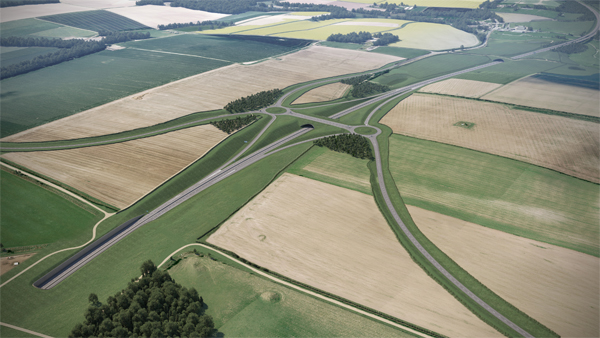A group of senior transport professionals and academics has called for greater 'transparency, coherence and scrutiny' over the very foundations of future road spending.
The report is from the newly formed Road Investment Scrutiny Panel - a veritable who's who of influential figures in the transport and highways sector - funded by the independent Rees Jeffreys Road Fund.
The panel's report raises seven key questions about achieving value for money in future spending, on the following topics:
- decarbonisation,
- biodiversity,
- health and social impacts,
- maintenance and optimisation,
- safety,
- consideration of alternatives
- and the robustness of investment decisions in a changing world.
Raising concerns and recommendations across each of these areas, the report takes on long-running and often controversial debates within the sector such as induced demand, modelling uncertainties and the uneven benefits of road schemes.
For instance, it raises the concern that: 'investment to generate enhanced road capacity for motor traffic and the assumptions on future road use on which this is based may run counter to the course we need to steer to meet our decarbonisation obligations'.
Key themes highlighted include the need for:
- road spending decisions to be coherent and stand up to scrutiny when viewed in the context of broader policy aims, notably the statutory duty to achieve a net zero carbon economy
- decisions to be well-informed both in relation to the existing road network and its use (including ‘connected’ vehicles generating data on driver behaviour such as patterns of harsh braking that could allow identification of locations posing road safety risks) and in terms of future possibilities in a changing and uncertain world
- more transparency regarding how decisions were arrived at and the underlying analysis.

The A303 scheme at Stonehenge does not have planning permission after a High Court ruling
Lead convenor of the group, Professor Glenn Lyons of UWE Bristol, said: 'In a world beset by global shocks and the climate and nature emergency, ensuring that we weigh the make-up and scale of our investment in roads and really think through how we want our roads to be used matters more than ever – money is tight and our roads perform a vital service, so we need our governments - nationally and locally - to get us the best bang for buck in delivering safe, efficient, environmentally sustainable and socially just travel.
'We’re not about standing in the path of worthwhile projects; our view is that many of the delays we have seen on recent road schemes could be avoided through a more robust and transparent demonstration of their consistency with the trajectory transport needs to follow to comply with our statutory duty to cut carbon emissions, as well as achieving our ambitions to foster enhanced biodiversity and improve our health and safety.'
Chair of trustees David Tarrant said the report 'poses a set of salient and timely questions that should challenge all our thinking when it comes to informing decisions about spending on roads'.
The Panel was formed last year 'prompted by the coming together of factors making 2023 a critical moment for decisions on road investment' such as the current decision-making behind the third road investment strategy and the work to revise the National Policy Statement for National Networks.
It is made up of:
- Professor Jillian Anable
- Professor Nicola Christie
- Professor Stephen Glaister
- Professor Steve Gooding (co-convenor)
- Professor Phil Goodwin
- Professor Karen Lucas
- Professor Glenn Lyons (chair)
- Andrew Crudgington (secretary)





